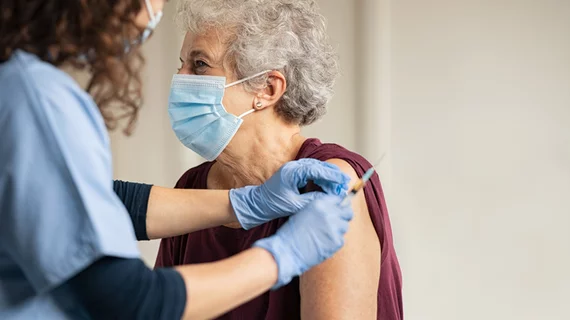US recommends pause of Johnson & Johnson COVID-19 vaccine due to blood clot risk
The Food and Drug Administration (FDA) and Centers for Disease Control and Prevention (CDC) are recommending a pause in the use of the Johnson & Johnson COVID-19 vaccine after receiving multiple reports of severe blood clots in individuals who have been vaccinated.
Six cases have been reported thus far in the United States. In every instance, the individual was a woman between the ages of 18 and 48 years old. Symptoms occurred six to 13 days after vaccination. The CDC’s Advisory Committee on Immunization Practices will be reviewing these cases on April 13. The agencies are recommending that the administration of the Johnson & Johnson vaccine be put on hold until that investigation is complete.
“Right now, these adverse events appear to be extremely rare,” Anne Schuchat, MD, principal deputy director of the CDC, and Peter Marks, MD, PhD, director of the FDA’s Center for Biologics Evaluation and Research, said in a joint statement from the two agencies. “COVID-19 vaccine safety is a top priority for the federal government, and we take all reports of health problems following COVID-19 vaccination very seriously.”
Individuals who have received the Johnson & Johnson vaccine are asked to contact their healthcare provider if they develop a severe headache, abdominal pain, leg pain or shortness of breath within three weeks of being vaccinated.
As of April 12, nearly 7 million doses of the Johnson & Johnson vaccine have been administered in the United States.
In Europe, the European Medicines Agency (EMA) is already actively looking into the possibility that the Johnson & Johnson vaccine is associated with a risk of “unusual blood clots with low blood platelets.” The FDA had already indicated it was aware of the ongoing situation in Europe; in fact, the agency helped supply data to the EMA.

